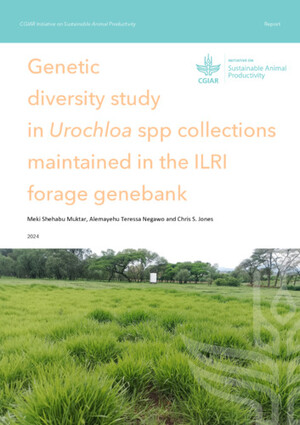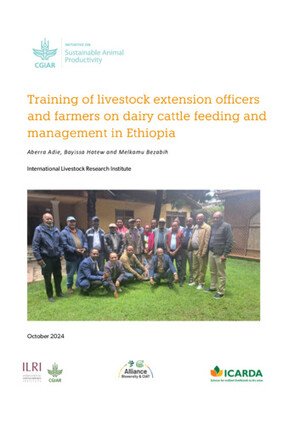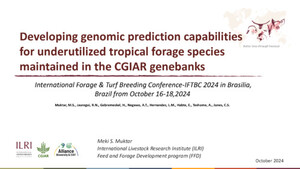
Medium-term seed storage of 50 genera of forage legumes and evidence-based genebank monitoring intervals
Abstract
Genebanks maintaining seeds for long-term genetic resources conservation monitor seed lots to detect early loss in viability. Monitoring is costly and depletes valuable seed. Three decades of genebank seed germination test results of diverse forage species from 50 legume genera in the International Livestock Research Institute’s medium-term store (circa 8 °C with 5% moisture content) were analysed to determine whether advice on seed monitoring intervals could be derived. Cumulative normal distributions were fitted by probit analysis for each seed lot and compared within each genus. Six patterns of within-genus variation were identified: no detectable trend in germination test results during storage (4 genera); detectable trends, but variable (positive to negative) amongst lots (5); consistent slope of loss in viability amongst lots (17); consistent slope of increase in ability to germinate amongst lots (21); common loss in viability amongst lots (2); common increase in ability to germinate amongst lots (1). Seed lot monitoring intervals for the medium-term store were derived for each of 19 genera with consistent loss in viability across seed lots: three genera provided comparatively rapid deterioration, five met the general expectations for a medium-term store (2–10 years’ maintenance of high viability), whilst 11 provided much better survival. Moreover, 26 further genera provided no evidence as yet of seed deterioration; of these, 22 improved in ability to germinate during storage indicating confounding of hardseededness with viability in germination tests.
Citation
Ellis, R.H., Nasehzadeh, M., Hanson, J. and Woldemariam, Y. 2018. Medium-term seed storage of 50 genera of forage legumes and evidence-based genebank monitoring intervals. Genetic Resources and Crop Evolution 65(2):607–623.










